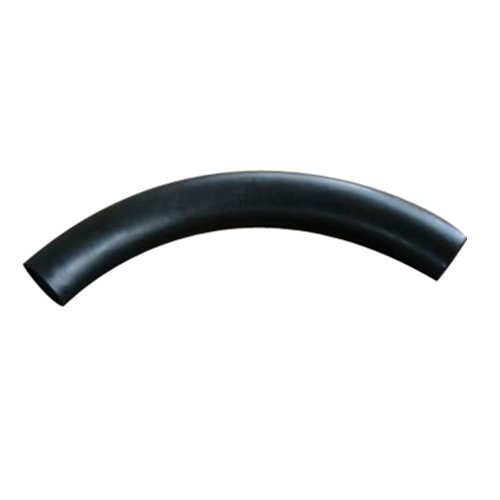-
Cangzhou Yulong Steel Co., Ltd.
-
Phone:
+86 13303177267 -
Email:
admin@ylsteelfittings.com
- English
- Arabic
- Italian
- Spanish
- Portuguese
- German
- kazakh
- Persian
- Greek
- French
- Russian
- Polish
- Thai
- Indonesian
- Vietnamese
- Zulu
- Korean
- Uzbek
- Hindi
- Serbian
- Malay
- Ukrainian
- Gujarati
- Haitian Creole
- hausa
- hawaiian
- Hebrew
- Miao
- Hungarian
- Icelandic
- igbo
- irish
- Japanese
- Javanese
- Kannada
- Khmer
- Rwandese
- Afrikaans
- Albanian
- Amharic
- Armenian
- Azerbaijani
- Basque
- Belarusian
- Bengali
- Bosnian
- Bulgarian
- Catalan
- Cebuano
- China
- China (Taiwan)
- Corsican
- Croatian
- Czech
- Danish
- Esperanto
- Estonian
- Finnish
- Frisian
- Galician
- Georgian
- Kurdish
- Kyrgyz
- Lao
- Latin
- Latvian
- Lithuanian
- Luxembourgish
- Macedonian
- Malgashi
- Malayalam
- Maltese
- Maori
- Marathi
- Mongolian
- Myanmar
- Nepali
- Norwegian
- Norwegian
- Occitan
- Pashto
- Dutch
- Punjabi
- Romanian
- Samoan
- Scottish Gaelic
- Sesotho
- Shona
- Sindhi
- Sinhala
- Slovak
- Slovenian
- Somali
- Sundanese
- Swahili
- Swedish
- Tagalog
- Tajik
- Tamil
- Tatar
- Telugu
- Turkish
- Turkmen
- Urdu
- Uighur
- Welsh
- Bantu
- Yiddish
- Yoruba

Dec . 15, 2024 22:33 Back to list
API 5L Line Pipe Specifications and Applications in the Oil and Gas Industry
The Importance of API 5L Line Pipe in the Oil and Gas Industry
In the oil and gas industry, the transportation of crude oil and natural gas over long distances requires reliable and robust piping solutions. One of the most widely used standards for such applications is the API 5L line pipe specification. This specification, developed by the American Petroleum Institute (API), outlines the requirements for the manufacturing and testing of line pipes that are primarily used in the transportation of oil, gas, and water.
API 5L line pipes are designed to operate under various environmental conditions, including high pressure and temperature, making them essential in upstream and midstream operations. The pipes are categorized into two main grades PSL1 and PSL2. PSL1 pipes are suitable for lower-strength applications, while PSL2 pipes provide higher strength and resistance to sour conditions—where hydrogen sulfide, a corrosive gas, is present.
The Importance of API 5L Line Pipe in the Oil and Gas Industry
Quality and safety are paramount in the oil and gas sector, and API 5L line pipes adhere to rigorous testing and inspection protocols. These include non-destructive testing (NDT) methods such as ultrasonic testing and radiographic testing, which help detect any irregularities or defects in the pipes. Compliance with these standards not only ensures the structural integrity of the pipes but also protects against leaks and failures, which can have catastrophic consequences in this industry.
api 5l line pipe

The certification of API 5L line pipes also plays a vital role in international trade. Many countries require that imported line pipes meet certain standards, and API 5L certification often serves as a benchmark. This facilitates smoother trade and helps maintain uniform quality across global supply chains, ensuring that operators can trust the performance of their materials.
In addition to meeting physical specifications, API 5L line pipes are regularly updated to incorporate the latest technological advancements and safety regulations. This adaptability is crucial, given the evolving challenges in the oil and gas industry, ranging from fluctuating market demands to increasing environmental concerns. The most recent revisions of the API 5L standard have addressed issues such as emissions control and sustainability, emphasizing the industry's commitment to reduced environmental impact.
However, the use of API 5L line pipes is not without challenges. The need for continuous monitoring and maintenance is critical, as external factors like soil conditions and temperature fluctuations can affect the longevity of the pipelines. Moreover, with the ongoing push for renewable energy sources, the future demand for traditional oil and gas infrastructure, including API 5L line pipes, may face uncertainties.
In conclusion, API 5L line pipes are indispensable components in the oil and gas industry, providing a dependable solution for transporting hydrocarbons under a wide range of conditions. Their rigorous production standards, adaptability to modern requirements, and commitment to safety make them an essential choice for operators worldwide. As the energy landscape continues to evolve, the API 5L standard will remain a cornerstone for ensuring the integrity and reliability of pipeline systems.
Latest news
-
ANSI 150P SS304 SO FLANGE
NewsFeb.14,2025
-
ASTM A333GR6 STEEL PIPE
NewsJan.20,2025
-
ANSI B16.5 WELDING NECK FLANGE
NewsJan.15,2026
-
ANSI B16.5 SLIP-ON FLANGE
NewsApr.19,2024
-
SABS 1123 FLANGE
NewsJan.15,2025
-
DIN86044 PLATE FLANGE
NewsApr.19,2024
-
DIN2527 BLIND FLANGE
NewsApr.12,2024
-
JIS B2311 Butt-Welding Fittings LR/SR 45°/90° /180°Seamless/Weld
NewsApr.23,2024











